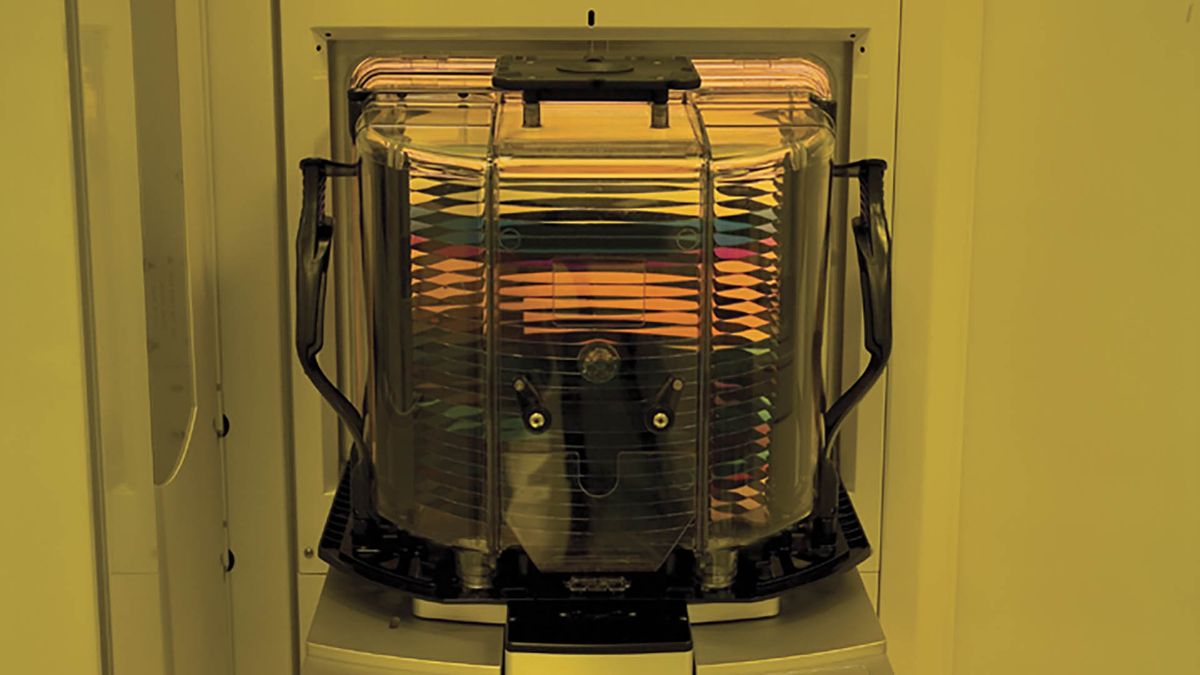The Potential Threat to the World’s Largest Chipmaker
In a recent report by Bloomberg, it has been revealed that Taiwan Semiconductor Manufacturing Co., Ltd (TSMC), the world’s largest chipmaker, has the ability to remotely disable its lithographic machines in the event of an invasion. This news has sparked concerns about the potential catastrophic impact on the global supply of advanced computer chips, as TSMC produces a significant percentage of these chips.
According to sources close to the matter, both TSMC and its main machine supplier, Dutch company ASML, have implemented a kill switch that can be activated remotely. This precautionary measure is in place to ensure that the sophisticated lithographic machines do not fall into hostile hands during times of crisis.
The kill switch applies to the latest Extreme Ultraviolet (EUV) machines produced by ASML, which are crucial for manufacturing intricate and powerful computer chips. These machines require specialized components, resources, and expertise to function effectively, making it highly unlikely that they could operate at full capacity if disconnected from the global economy.
The US government has reportedly engaged in discussions with TSMC and ASML regarding the security of these machines in the event of an invasion. ASML has reassured officials that they have the capability to prevent the machines from being compromised, alleviating some concerns about potential security breaches.
Implications for Global Chip Supply and National Security
The news of TSMC’s kill switch has raised concerns about the impact on the global supply chain for computer chips. With TSMC producing a significant portion of the world’s advanced chips, any disruption in its operations could have far-reaching consequences for various industries that rely on these components.
In response to concerns about national security, there has been a push for increased investment in chip-making facilities in the US and Europe. The CHIPS Act in the US aims to incentivize the establishment of fab facilities by offering substantial financial support to major chip-making companies, including TSMC, Intel, and Samsung.
Despite efforts to diversify chip production locations, a large percentage of processors are still expected to be manufactured in Taiwan for the foreseeable future. The geopolitical tensions in the region continue to pose challenges for the tech industry, highlighting the importance of strategic planning and security measures to safeguard critical technologies.
Future Prospects for the Tech Industry and National Defense
The development of a kill switch for lithographic machines underscores the growing concerns about cybersecurity and national defense in the tech industry. As geopolitical tensions escalate, companies like TSMC and ASML are taking proactive steps to protect their valuable assets and prevent potential security threats.
The implementation of security measures like the kill switch is a crucial aspect of ensuring the resilience of the global supply chain for computer chips. By addressing potential vulnerabilities and strengthening security protocols, chipmakers can mitigate risks and safeguard critical technologies from unauthorized access or exploitation.
Overall, the news of TSMC’s kill switch serves as a reminder of the complex challenges facing the tech industry and the importance of proactive security measures in safeguarding critical infrastructure. As the global demand for advanced computer chips continues to rise, companies must remain vigilant and adaptable to navigate the evolving landscape of cybersecurity threats and geopolitical risks.




